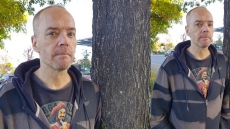TORONTO — Fresh debate surrounding a sexual assault allegation involving a U.S. lawmaker has spurred hundreds of Canadians to offer support to silent survivors by adding their names to trending online hashtags including #WhyIDidntReport and #BelieveSurvivors.
The wave of social media warriors included Ontario NDP member of provincial parliament Jill Andrew and former Ontario MPP Cheri DiNovo, who each referenced the hashtag #WhyIDidntReport on Twitter in recent days to call attention to the reasons many assault victims don't speak out.
"Because I was 7. Because he said he would cut my mother up, put her in a black plastic bag and put her body in a river," Andrew tweeted from her account @JILLSLASTWORD.
"I didn't report for the same reasons they don't — someone you care for. How would the justice system help?" DiNovo tweeted from her verified account @CheriDiNovo.
DiNovo said Monday she was reminded of the #BeenRapedNeverReported hashtag of 2014, which emerged in the wake of allegations surrounding Jian Ghomeshi. The former CBC Radio star was acquitted in March 2016 of sexually assaulting three women following a high-profile criminal trial.
DiNovo says she's continually stunned by the number of sex-assault allegations she hears as a minister in the United Church.
"What is upsetting is that there's a new hashtag every year or couple years saying the same thing and still the numbers (of allegations) are pouring in and they're young women," says DiNovo.
"A lot of these are recent assaults and again, they're not the kind of assault where it's a stranger crawling in your window at night with a knife or a gun. These are what most assaults are: friends, lovers, relatives and you're not going to turn them in. Justice is not an option for you for a variety of reasons."
The #WhyIDidntReport hashtag exploded following a tweet from U.S. President Donald Trump who asked why a woman accusing his Supreme Court pick did not report her decades-old claim of sexual assault.
Christine Blasey Ford, a California psychology professor, alleges that U.S. Supreme Court nominee Brett Kavanaugh tried to sexually assault her when both were teenagers more than 30 years ago. Another accusation emerged over the weekend, when Colorado resident Deborah Ramirez alleged Kavanaugh thrust his penis in her face at a party during his first year at university. Kavanaugh has denied both allegations.
Meanwhile, thousands of women answered Trump's question on Twitter in recent days, including many in Canada, where a concurrent social media campaign around #BelieveSurvivors also found some support. That movement urged people to wear black on Monday and participate in a "walk out" in solidarity with Ford.
Toronto resident Nicole Rajakovic shared a photo of herself on Twitter wearing black jeans and a black shirt on Monday, tagged #BelieveSurvivors.
"A lot of the reasons that this woman in the U.S. has spoken about were very, very similar to mine, which is why it's become very top of mind for me," says Rajakovic, identifying herself as a survivor, but noting she has not spoken to her family about the assault.
"I have a daughter. I want to be able to speak openly about it, to show her how important it is for women to speak up."
Seeing scores of others reveal their experiences is "powerful," she adds.
"The more people you meet, the more you realize how it's really not that unique of a situation, that there are so many people who have experienced this," she says.
Communication, media and film professor Jessalynn Keller, who has studied digital feminist activism through her work at the University of Calgary, says people seem emboldened to participate in thorny debates around sexual misconduct as they increasingly unfold in public.
But any notion that it's easy for victims to come forward and share their stories is false, she says.
"The predominant narrative is that everyone just jumps online and posts their story and in actuality, research is telling us that it's not quite that simple. A lot of women post it and then delete it. And then repost it again," says Keller, noting that while it can be cathartic for some victims, many have said they agonized over whether to participate in #MeToo-related hashtags in the past.
"A lot of women thought for several days of whether they wanted to post — how their friends and family would react. The participants of these hashtags are quite self-reflective. This is not an easy decision to even decide to share their story online, even if it was years ago or even if their name isn't attached."
Keller says the Ghomeshi story resonated deeply in Canada and points to a sustained effort to keep the conversation going.
And she's hopeful that today's teenagers are much better informed on issues surrounding gender and consent, noting that many Ontario youth battling over a contentious sex-ed curriculum seem very plugged in to social issues.
"They have a very sophisticated language around these issues and a keen understanding about what consent is and it seems like adults don't have this," says Keller.
"These conversations we're having — they're filtering down, they're making sense. But it takes a long time for us to see those changes in our institutions."



